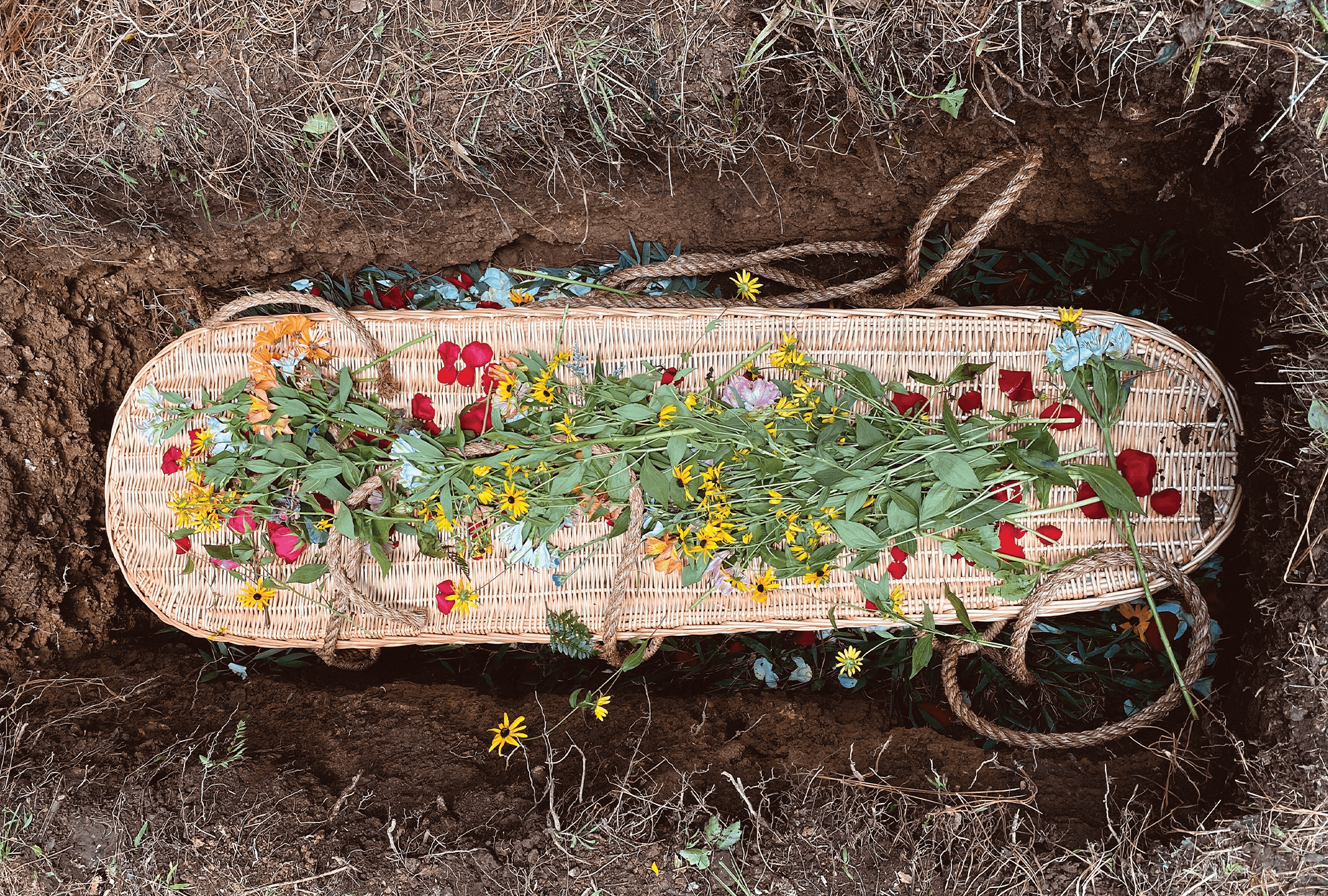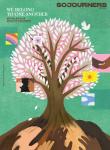Share As A Gift
Share a paywall-free link to this article.
This feature is only available for subscribers.
Start your subscription for as low as $4.95. Already a subscriber?

A wicker casket is placed in the soil. / Larkspur Conservation
Mallory McDuff is the author of Our Last Act: Planning for the End of Our Lives to Protect the People and Places We Love. She spoke with Sojourners' Betsy Shirley.
“GREEN BURIAL” IS a broad term that means burial without embalming, a concrete vault, or materials that don’t biodegrade. Prior to the Civil War, embalming wasn’t common practice in the U.S., and we didn’t have these concrete vaults lining the grave and further separating the body from the soil.
I think there’s a growing sense now that a relationship with God also means our bodies and the earth are not separate.There are other practices that are also more sustainable, like aquamation—a form of cremation using water and lye—or even body composting. Ask what’s available in your region. One of those options for me is conservation burial grounds where the land is protected in perpetuity; the money you spend to buy a plot goes toward the restoration of that land.
You can get a willow casket. You can make a pine casket. You can wrap your dad in tablecloth linens, as I did with my father. Those decisions can be important, but they go back to that relationship with the earth and with each other. There are people who are going to be carrying that shrouded body and putting it into the earth and covering it with soil, and children who will be throwing flower petals onto that earth.
It’s not just about the environment. It’s also about involving family and friends in these rituals of death which, from my experience, allow us to live into the loss of someone we love and carry their love with us.

Got something to say about what you're reading? We value your feedback!